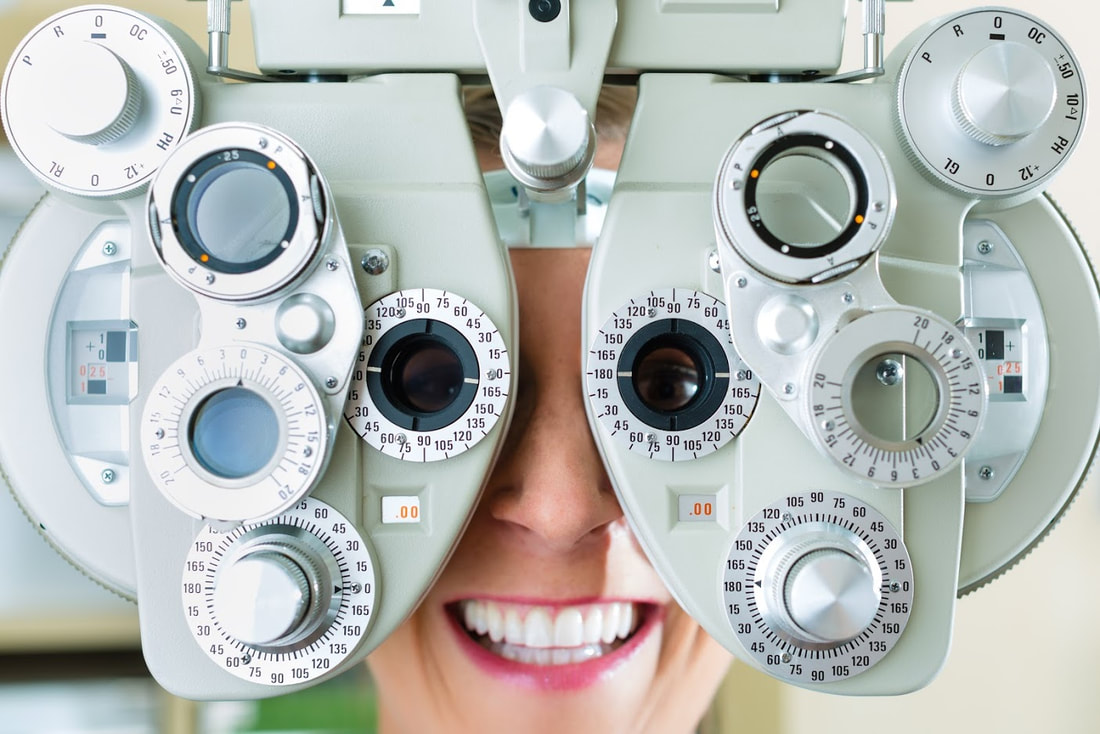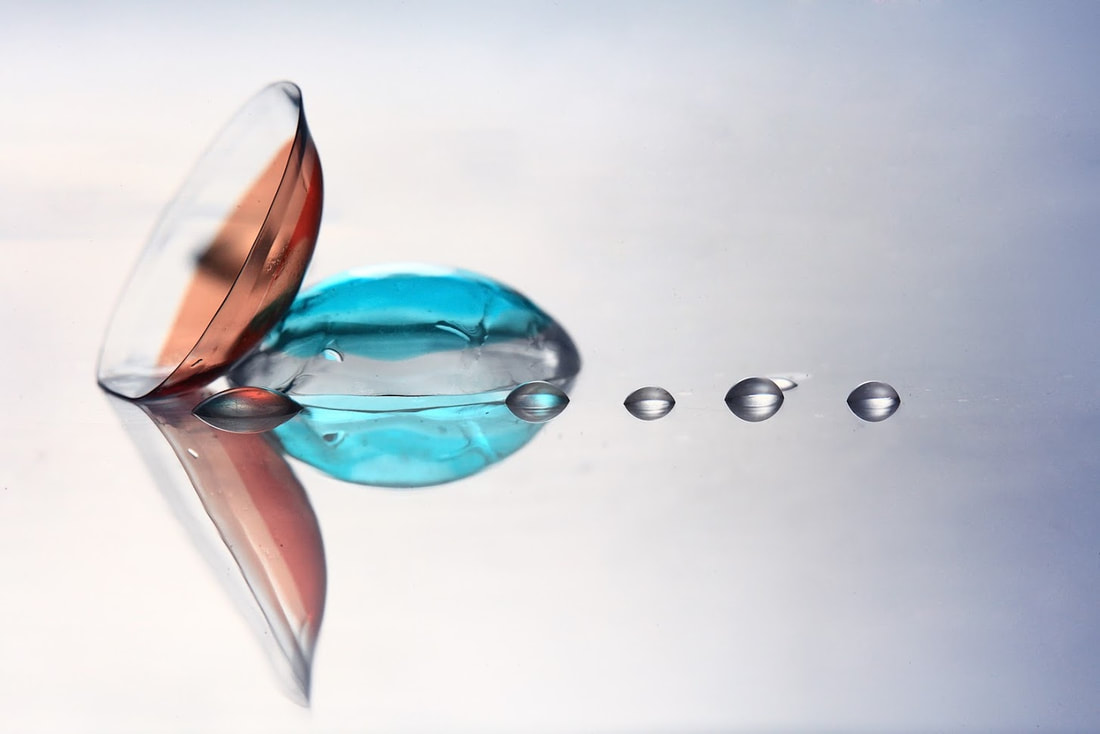 Your eyes are an important part of your physical health and also your quality of life. Unfortunately, many people take their eyes and vision health for granted. Certain habits may not seem like big problems, but these habits can actually affect the underlying health of your eyes and your vision quality. Thankfully, help is available if you want to protect your eye health. This guide and your eye doctor will help you stop making a few common mistakes that can hurt your eyes. 1. Avoiding the Eye DoctorOne of the most common and one of the worst mistakes you can make is avoiding the eye doctor. Regular visits to the eye doctor are imperative for a few reasons. Eye exams will help determine if you have issues affecting your vision quality, such as nearsightedness or farsightedness. Once detected, you can begin correcting your vision quickly by wearing glasses or contact lenses. Although important for your actual eyesight, regular eye exams are also crucial for determining if you are at risk of any eye disorders. Exams are important for early detection, which is key for preventing certain disorders, such as cataracts and glaucoma, from worsening. When you see an eye doctor depends on a few factors, including your age, health, and if you have a family history of eye disorders. If you are between the ages of 18 and 60 and have no current issues, eye exams are recommended every two years. If you are over 60 years of age, seeing your eye doctor once a year is best. 2. Rubbing your EyesEveryone experiences an itch or slight discomfort in and around the eyes. Even though it can be beneficial and pain-relieving in some cases, rubbing the eyes excessively can do more harm than good. Your hands will carry numerous germs and bacteria, which can be easily transmitted if you rub and scratch your eyes. Germs, bacteria, and even loose dirt or dead skin cells could become trapped inside your eyes, increasing your risk of allergies and even infections. If you rub your eyes in an attempt to remove a fleck of dirt or another particle, you may end up pushing the foreign object further into the eye, scratching or even damaging the lens or cornea. Recent studies have also shown constantly rubbing your eyes could wear down the cornea. Known as keratoconus, this thinning of the cornea can greatly distort your vision. Instead of rubbing your eyes, consider flushing the eye out with a saline solution or artificial tears. If this is not successful, visit your eye doctor for assistance. 3. Not Wearing SunglassesAnother mistake you may be making is not wearing sunglasses. To understand why sunglasses are important, you need to understand how the sun can be so dangerous to your eyes.
The sun's ultraviolet rays are harmful to your skin and your eyes. Constant exposure, which you may not even realize you are receiving, can weaken the cornea and lens, increasing the risk of cataracts and glaucoma. Although shocking to learn, 20 percent of cataract cases stem from UV exposure. The constant exposure to the sun's rays can also affect your vision. UV exposure can damage the retina, as well, leading to macular degeneration, which is the leading cause of blindness in the United States. Wearing sunglasses, whether you need prescription lenses or not, can block out ultraviolet radiation, protecting your eye's overall health. When you choose sunglasses, opt for lenses that block out 99 to 100 percent of UVA and UVB radiation for the most effective protection. Protecting your eyes and vision is possible with proper understanding and professional care. For more information on caring for your eyes and vision, contact Family Eye Care.
16 Comments
You may become overwhelmed at just the sight of the myriad contact lens types on the optometrist office shelves. With all of the options, you may wonder how your optometrist decides which contact lens type is best for you. Your optometrist takes great care to choose the contact lens type that will keep your eyes feeling comfortable while preventing any contact-induced eye problems in the future. Read on to learn four factors your optometrist takes into consideration when choosing your contact lens type. 1. Oxygen Transmissibility A contact lens forms a slight barrier between your cornea and the oxygen-containing air your cornea needs to "breathe." When your corneas don't receive the oxygen they need, eye problems can develop due to corneal hypoxia. Corneal hypoxia can cause a variety of eye problems, including corneal neovascularization. This condition occurs when new blood vessels grow along the surface of your cornea to help transport oxygen-filled blood to your oxygen-deprived corneas. This neovascularization cannot only be unsightly, causing red and inflamed eyes, but it can also lead to vision loss when it becomes severe. One way to prevent corneal hypoxia is to limit your contact lens wear. However, if you tend to wear your contact lenses for long periods of time, your optometrist will recommend a contact lens that has high oxygen transmissibility. These lenses are made of materials that allow more oxygen to reach your corneas while you are wearing them to reduce the chances of corneal hypoxia-related eye damage. 2. Water Content The water content of different types of contact lenses can vary greatly. Some contain under 40 percent water while others contain almost 80 percent water. While most contact lens wearers benefit from contacts with water content that lie somewhere in the middle, some people require high- and low- water content contact lenses to maintain their eye health and contact lens comfort. Contacts with superior oxygen transmissibility often (but not always) contain a high water content, so high-water lenses are good for contact lens wearers prone to hypoxia. However, as the water content of these lenses evaporate over the course of the day, they pull more of your eyes' natural tears into them to keep them moist. Low water contact lenses are better for people who suffer from dry eye, because they pull fewer of the eyes' natural tears into them throughout the day. In addition, low water content lenses are thinner than those with high water content, and some contact lens wearers find thinner lenses more comfortable. 3. Special Lens TechnologyMany contact lenses are now equipped with special technologies that benefit people with specific eye problems or lifestyles. For example, if you dislike bright lighting or find that it causes eye strain, your doctor may recommend contact lenses with photochromic technology. This technology causes the lenses to darken when you are inside of brightly lit rooms or outside in the sun to reduce light-induced eye strain. If you spend long hours working in front of a computer, your eye doctor may recommend lenses equipped with special technology designed to reduce the eye strain that staring at digital devices can cause. You can also find numerous lenses on the market today equipped with special technologies that help combat dry eye. 4. Your PreferencesIf you have heard of or read about a new contact lens type that you think may prefer, then don't be afraid to speak up and ask your eye doctor if you are a good candidate.
In addition, don't be afraid to ask your eye doctor for disposable contact lenses if you currently wear typical daily wear lenses or vice versa. While daily wear lenses are cost-efficient and can keep your eyes in good health if you take great care of them, disposable lenses offer additional convenience and can help keep your eyes in optimal health with no required daily cleaning regimen. Reach out to the staff at Family Eye Care to schedule an eye exam and discuss your contact lens options today. |
Archives
April 2020
Categories |

 RSS Feed
RSS Feed